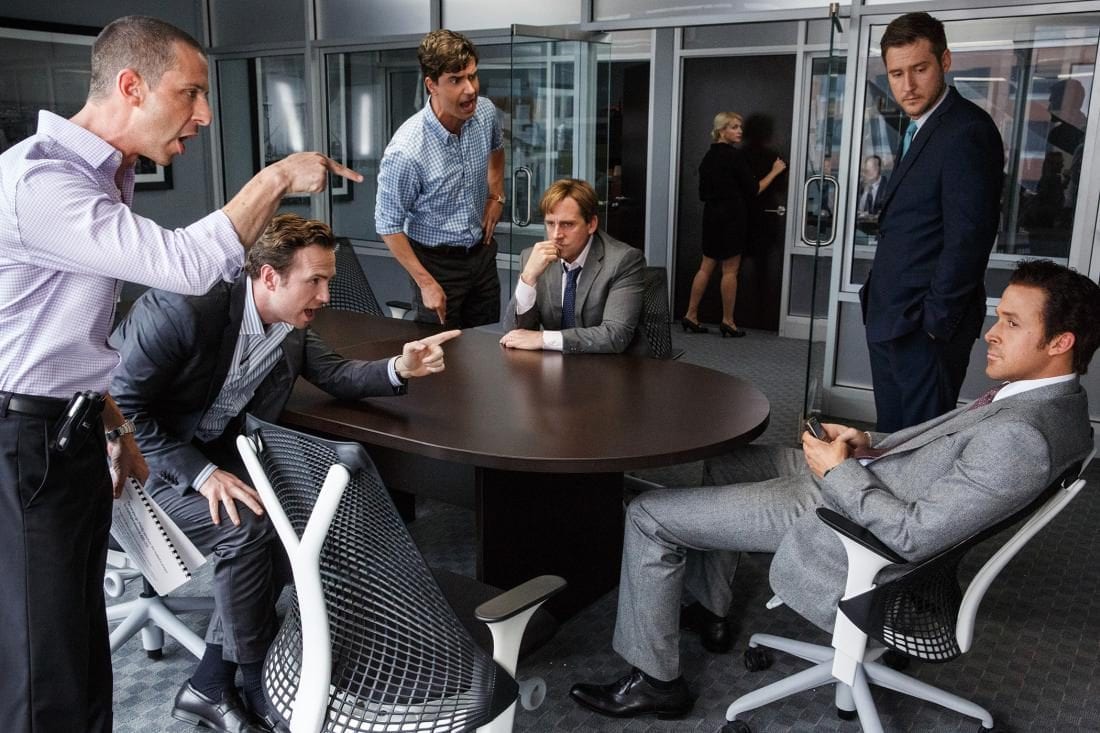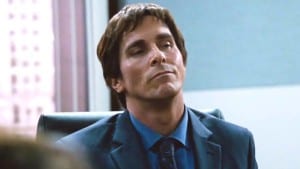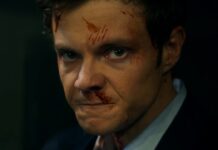MOVIE REVIEW: “THE BIG SHORT” (R)
![]()
Count yours truly as a huge fan of Martin Scorsese‘s jet-black comedy, “The Wolf of Wall Street.” Certainly it was excessive, but given that it was essentially a movie about excess, its blatantly excessive nature felt wholly appropriate. It was a brilliant satirical effort directed by a master-class filmmaker in his 70s but it was so alive that you’d think it was made by a man half Scorsese’s age. Additionally, “The Wolf of Wall Street” was headlined by a brilliant Leonardo DiCaprio whose brash, unapologetic performance was only complimented by his undeniable physical prowess. Look no further than an unforgettable scene in which sleazy DiCaprio’s Jordan Belfort tries to make it from the lobby of a country club to his extravagant car in the parking lot while drugged out of his mind. It is, quite simply, a piece of stunning physical acting for the ages.
What does any of this have to do with Adam McKay‘s new movie, “The Big Short”? Nothing directly. The previous paragraph was simply designed to set the stage for my next statement: While certainly more understated, “The Big Short” is a stronger overall film than “The Wolf of Wall Street,” and given my absolute love for that most polarizing effort from one of our greatest living filmmakers, that’s saying a lot!
McKay is most known for his loosey-goosey improvisational-style comedies. In fact, he’s the man responsible for delivering “Anchorman” upon the world; A righteously bit of side-splitting hilarity that is — arguably, the funniest and most instantly quotable comedy of the last twenty years. With his high-energy adaptation of Michael Lewis’ best-selling book, “The Big Short,” McKay shows an entirely new side to his filmmaking capabilities. This movie, while often funny, is also eye-opening, educational, and undeniably heartbreaking.
Whereas “The Wolf of Wall Street” was more of a story about sleazy, money-grubbing stock brokers taking advantage of individuals they clearly thought were beneath them, “The Big Short” follows a group of disassociated high-finance players who decide to go at the big banks after discovering that a credit and housing bubble collapse is all but inevitable. If you were paying attention in the mid-2000s, you are well aware that there was in fact a collapse, and these savvy individuals knew it was coming.
It’s clear that McKay has fashioned an immensely creative screenplay. “The Big Short” opts to trade in dark comedy and satire for something more restrained. Certainly, this is a funny movie, and there’s no doubt that “The Big Short” features brash individuals who are more interested in the almighty dollar than anything else. But what truly sets this film apart is that it offers up characters so engaging and downright likable that they are simply worth rooting for. What’s more, McKay and his co-writer Charles Randolph (working from Lewis’ source material) have an eloquent way of aiding the viewer in understanding what might be very complex finance jargon otherwise. Be it by way of Jenga or by way of an attractive woman explaining things in layman’s terms from the comfort of a bubble bath, it’s clear that McKay has fashioned an immensely creative screenplay to say the least.
McKay wisely shoots much of “The Big Short” in a hand-held style that might remind one of “The Office.” This style lends the film a much-welcome intimacy. While the dialogue is more controlled than it is in McKay’s comedies, there’s still a looseness and energy that gives “The Big Short” a fittingly appropriate free-flowing vibe.
The ensemble here is exceptional. “The Big Short” features the likes of Ryan Gosling, Brad Pitt, and Marisa Tomei, just to name a few. But there are two standouts.
Steve Carell is outstanding as Mark Baum, a finance expert with an axe to grind. He’s good at what he does and has the money to prove it, but his hatred towards the greed at the hands of the banking institutions, while slightly hypocritical, comes with good reason. Carell is so good here. He plays Baum as an feisty, ambitious individual who isn’t at all afraid to speak his mind. But there are deeper layers to Baum, and Carell completely nails every facet of this complex character. In short, this might just be “The Office” star’s best work to date.
Equally effective is a spaced out Christian Bale who hits all the right notes as calm and quirky hedge fund manager Michael Burry. Burry is cited as being perhaps the first individual to recognize that a collapse was imminent. So certain was this eccentric genius that he was willing to put up an obscene amount of money to prove his theory. Bale is subtle and compelling in one of his most restrained performances.
“The Big Short” powerfully taps into the horror and tension at the center of J.C. Chandor’s “Margin Call” as well as the gut-wrenching drama, desperation, and tragedy at the heart of Ramin Bahrani’s “99 Homes” and laces it with humor and energy. All of this coupled with outstanding performances make for one of the very best movies of 2015.







